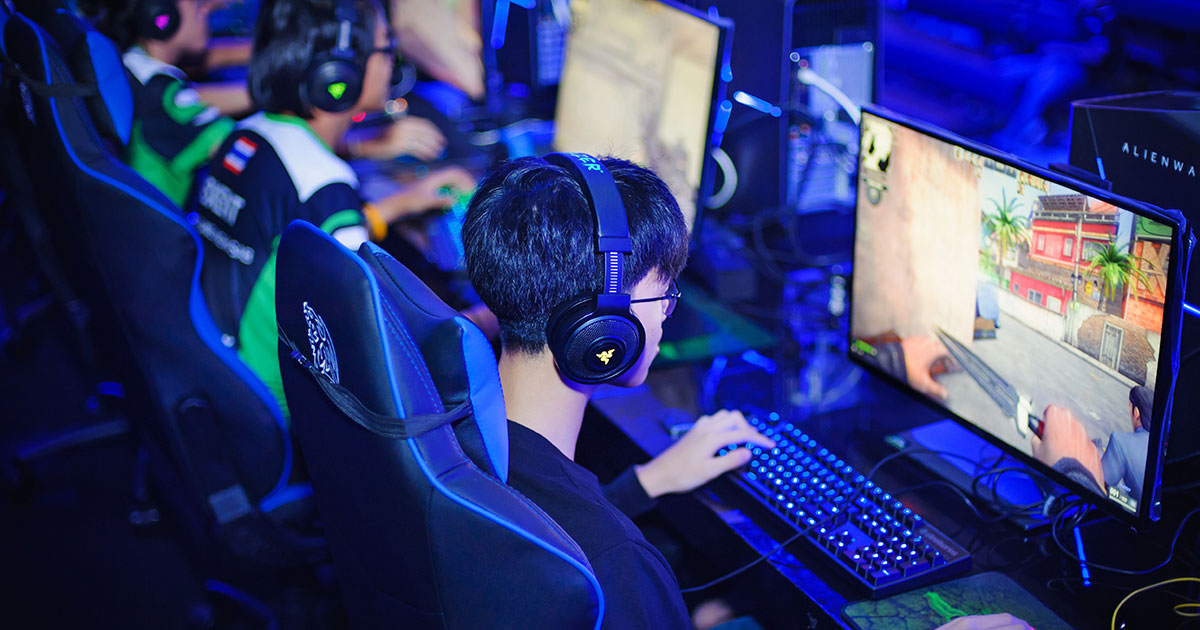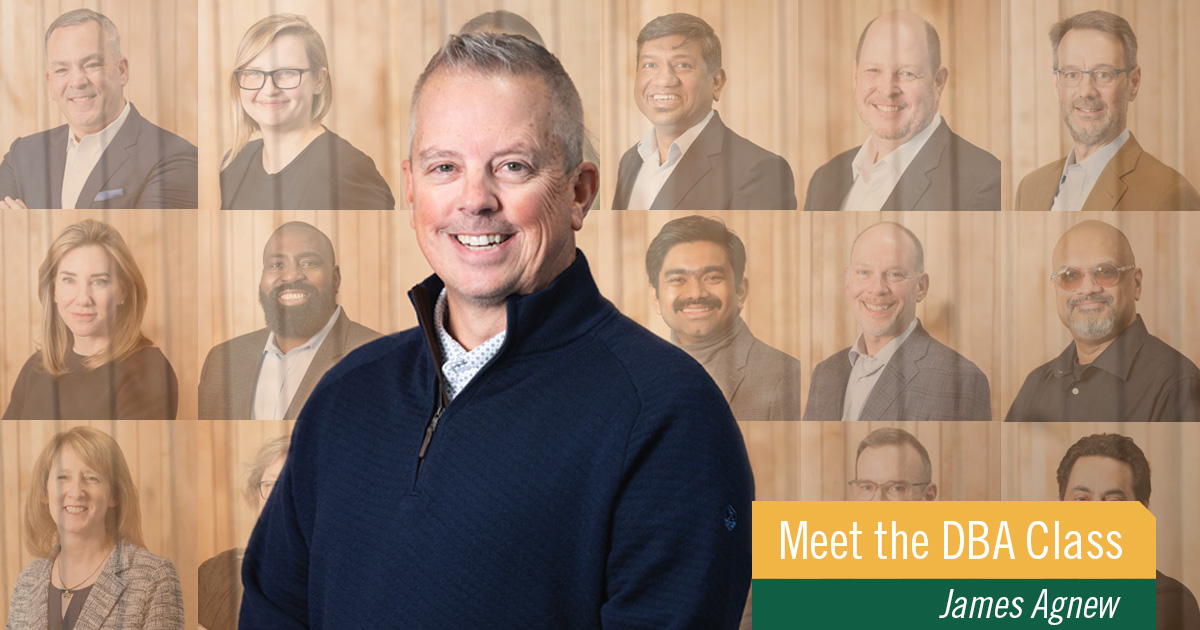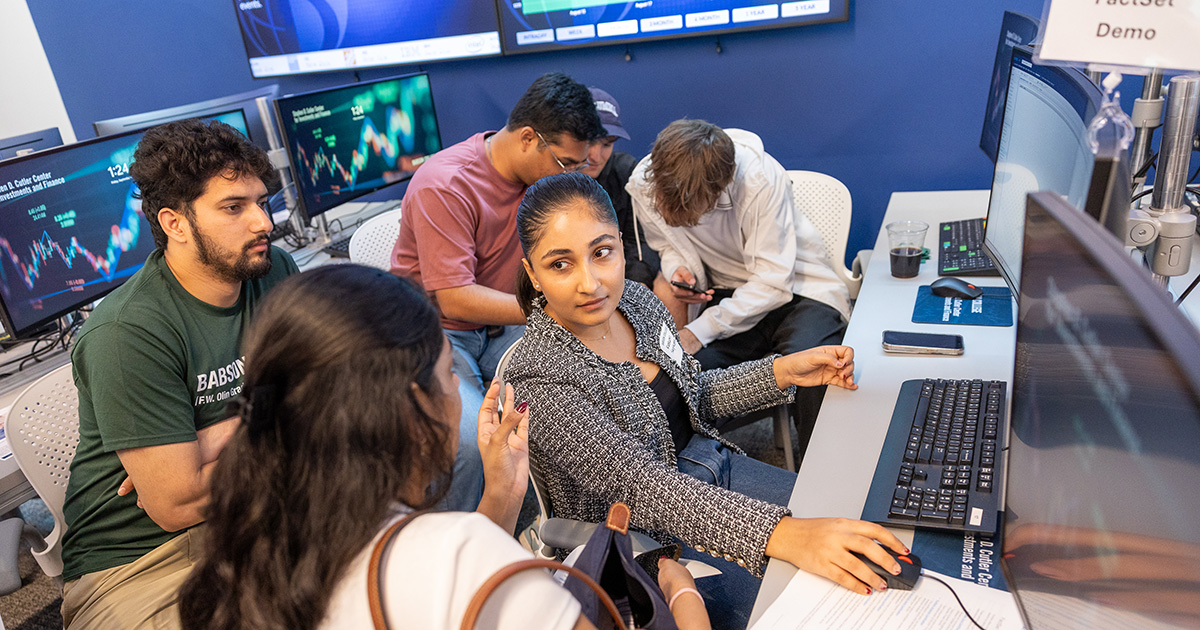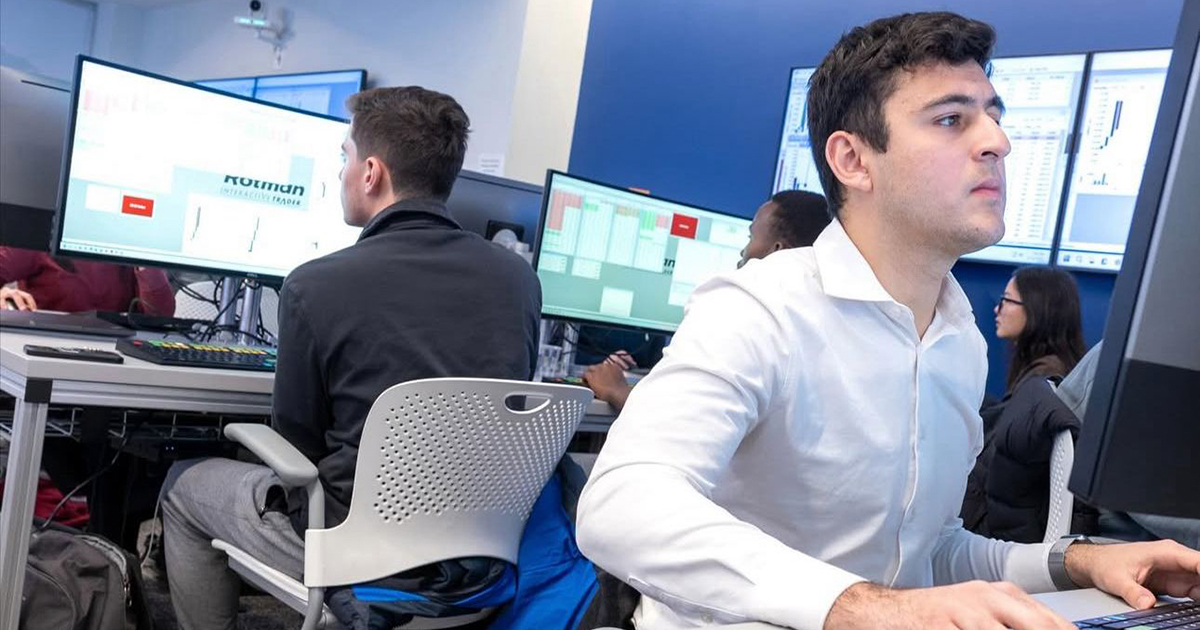The Wide, Widening World of Esports

When he was a student at Babson College, Mike Sepso ’94 spent a lot of time in the computer lab. For hours on end—probably way too many, Sepso admits—he would set up video game tournaments. “Doom” was the game of choice.
At the time, in the internet’s early days, the tournaments were limited to participants who were physically present in the lab, playing on its local area network.
In those tournaments, though, Sepso saw a flash of the future. He understood the popularity that video game competitions could have. “When the internet is widely available, this is going to take off,” Sepso remembers thinking. “You won’t need to be in the same room anymore.”
Fast forward two-plus decades, and the world of video game competition, or esports as it is commonly called, has most definitely taken off. According to Newzoo, a marketing firm focused on video gaming, the esports industry was expected to generate more than $1 billion in revenue in 2020, with a global audience of nearly a half-billion people.

Mike Sepso ’94, co-founder of Vindex
This popularity is reflected at Babson, where more than 100 students have joined Babson Esports. Founded last April, the club offers students not only competition but also much-needed camaraderie during the pandemic.
As for Sepso, he has become a significant player in the esports industry. In 2002, he co-founded Major League Gaming, a trailblazing professional esports league that eventually was sold to video game company Activision Blizzard in 2016. He then co-founded Vindex in 2019. It provides management, production, and other support services for esports events, while also looking to create esports venues for gamers to come together and compete through its Belong Gaming business.
With Vindex, Sepso’s mission is to help fuel the continued development of the sport he loves, one which he has seen grow tremendously since those humble “Doom” tournaments at Babson. “I started my esports career in the Babson computer lab,” he says proudly.
Bringing People Together
The rise of esports may run counter to the assumptions that adults of a certain age may have about video games and the people who play them. They may picture an isolated teenager, oblivious to the outside world, hunkered down in a rec room or basement.
Students in Babson Esports, though, say these stereotypes of lonely gamers are outdated. “There is a stigma that they sit in their mother’s basements and play video games all day. I would say the good majority of gamers don’t do that,” says Joey Hudicka ’24, who organizes events for the club. “It’s basically our medium. Instead of going to town, we play a video game.”
“Once COVID happened, people couldn’t connect with their friends at all. The games brought people back together. They were crucial and close to essential.”
Joey Hudicka ’24 of Babson Esports
Students say esports require teamwork and leadership and is a great way to socialize and meet people. “I have made some of my closest friends through video games,” says Jason Lin ’23, also an events planner for the club, who likes to hop onto an online gaming platform and see who else might show up to play. “It’s the equivalent of sitting on a bench and waiting for someone to join you.”
Such socialization is needed more than ever. Since its inception, Babson Esports has seen exponential growth in its membership. “Once COVID happened, people couldn’t connect with their friends at all. The games brought people back together. They were crucial and close to essential,” says Hudicka, who hopes to work in the production of esports events in the future. “If I didn’t have that, I feel like I would be very lonely right now.”
A club event virtually brings students together from all over the world, whether they are playing from their residence hall or wherever they may be living while taking classes remotely. “Just like music, video games can be a common language,” says Lawrence Yiu ’22, the club’s founder and president.
The Thrill of Sport
One of the factors making esports so universally appealing is the thrill of competition. When Sepso was launching Major League Gaming, at a time when the idea of a professional gaming league was far from common, he counted on tapping into that love of sport so evident in football stadiums and basketball arenas. “Everyone loves competition,” he says. “We knew esports would be huge and mainstream, if we could organize the competition.”
With Vindex, Sepso is continuing to help build up esports. He says the industry lacks much of the infrastructure that more established sports enjoy. Consider how much organization surrounds football or baseball in the United States. There are youth programs and fields everywhere. There are college teams and TV broadcasts.
“That infrastructure grew up slowly over many decades. None of that stuff exists in esports,” Sepso says. “Vindex’s mission is to take on the problems the esports industry has so it can mature faster.”
That might mean helping a league better broadcast its competitions, or building venues where gamers can come together in their own communities. “We are building the video game version of baseball diamonds across the country,” Sepso says.




